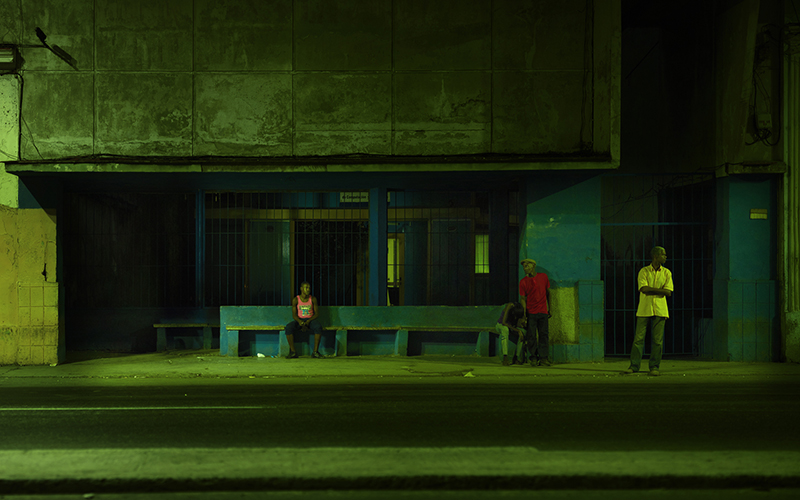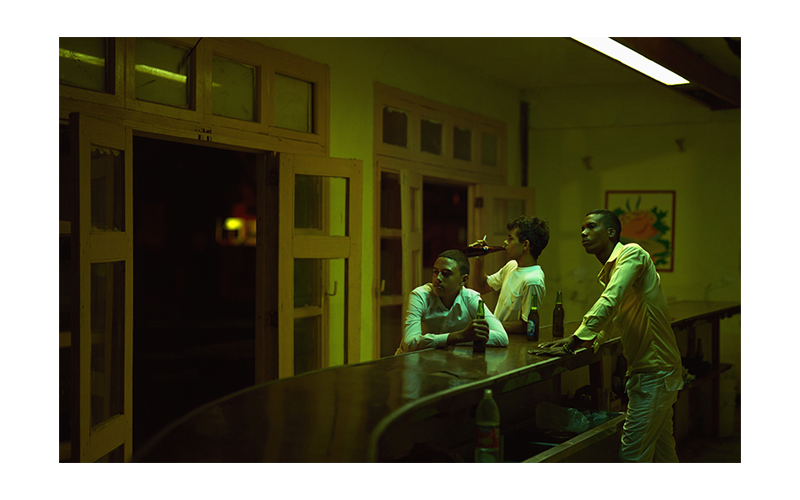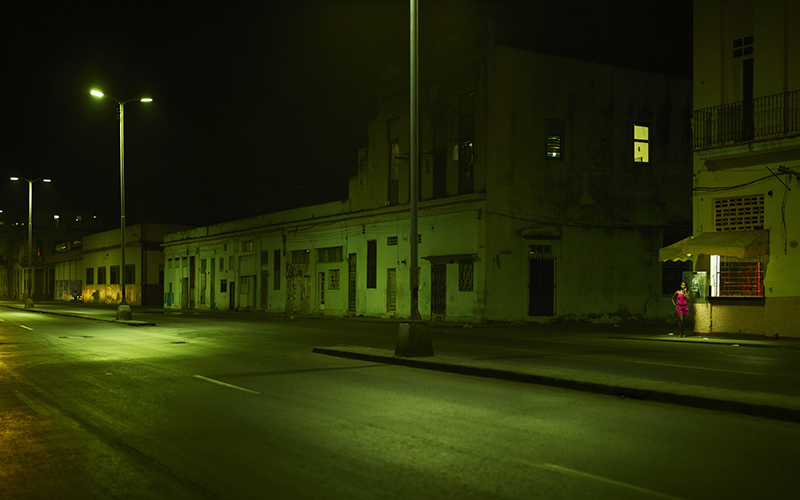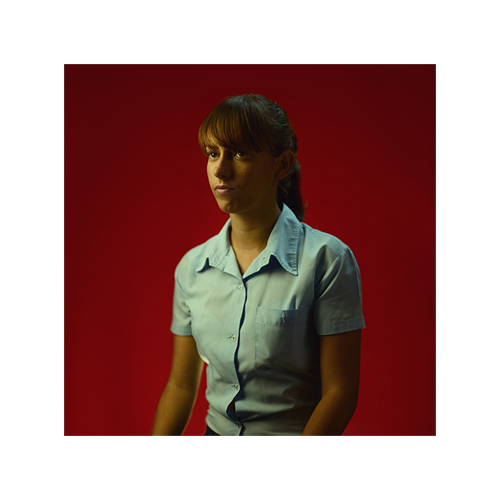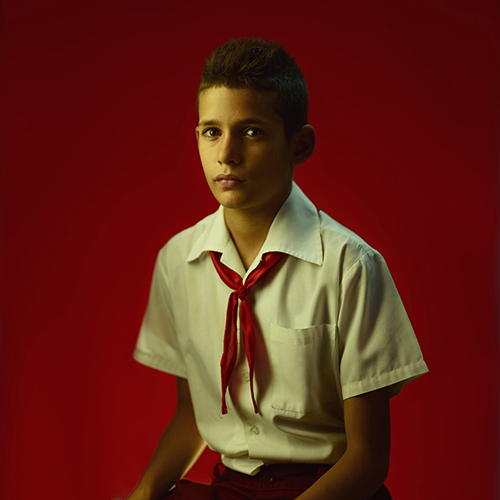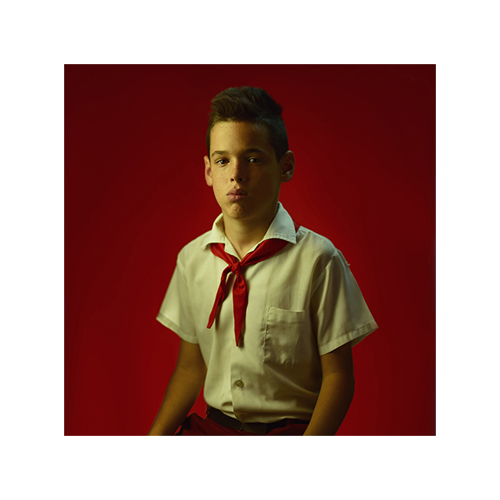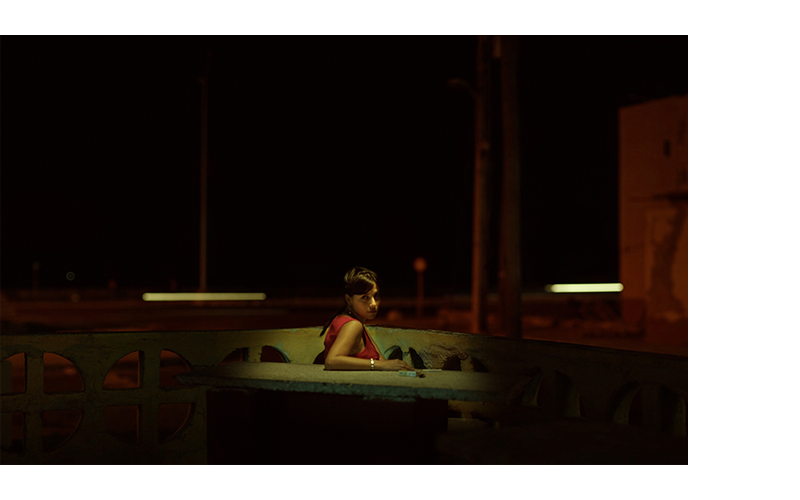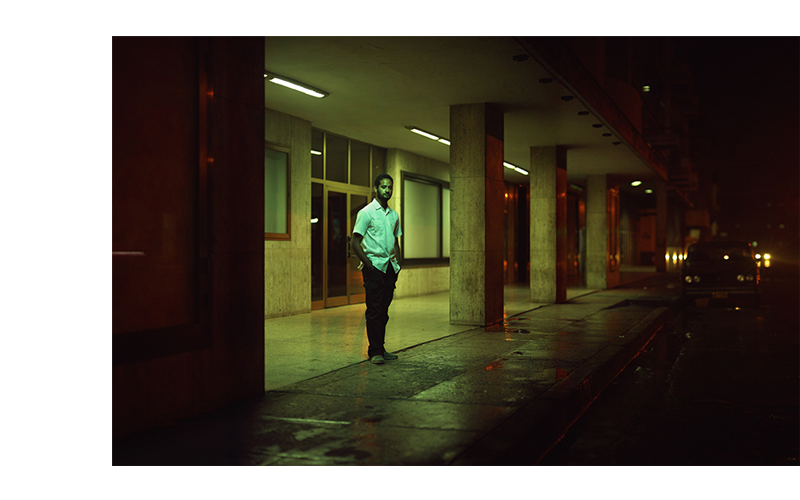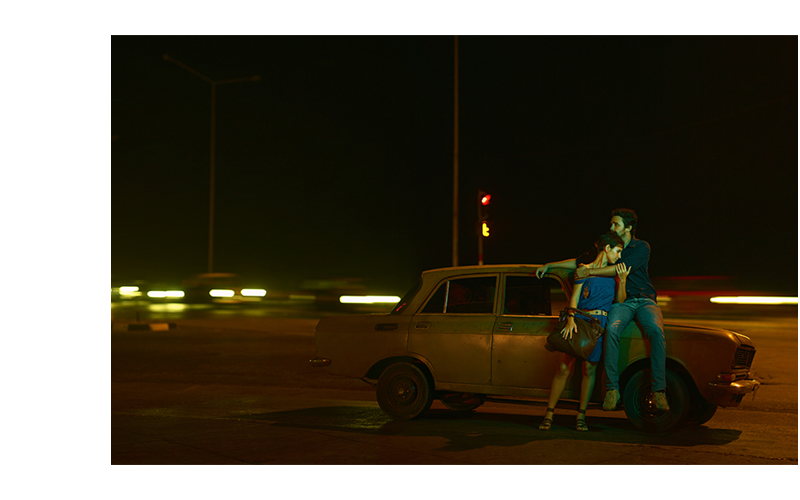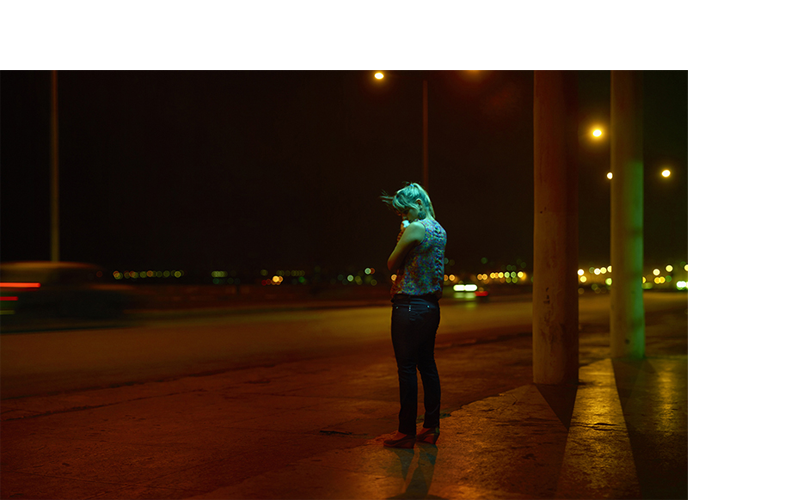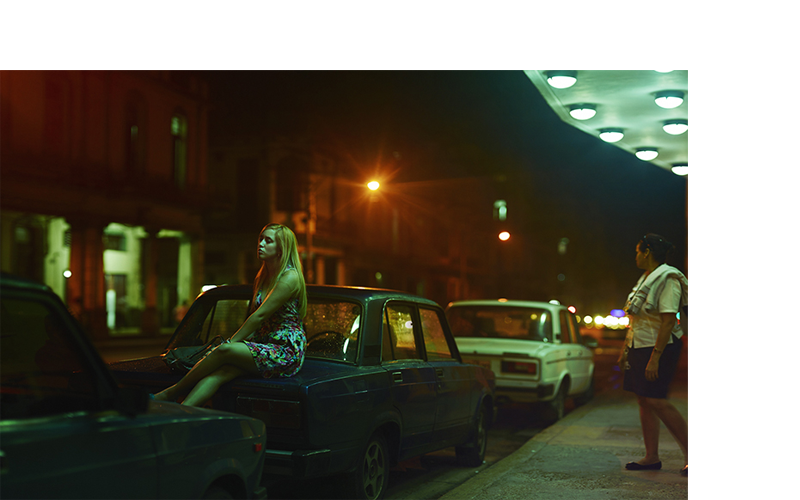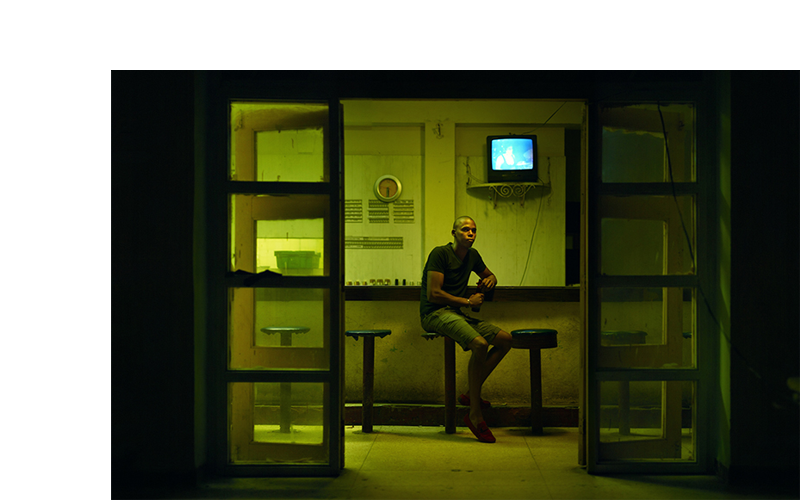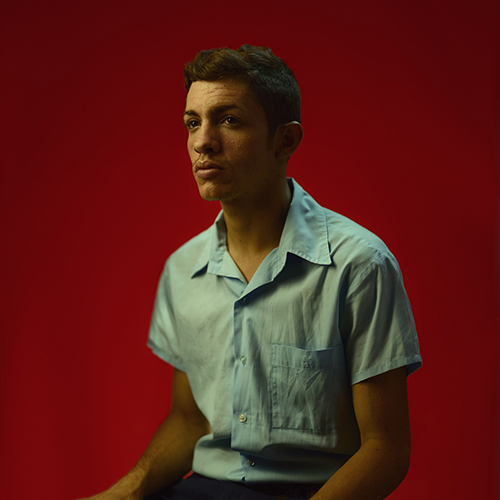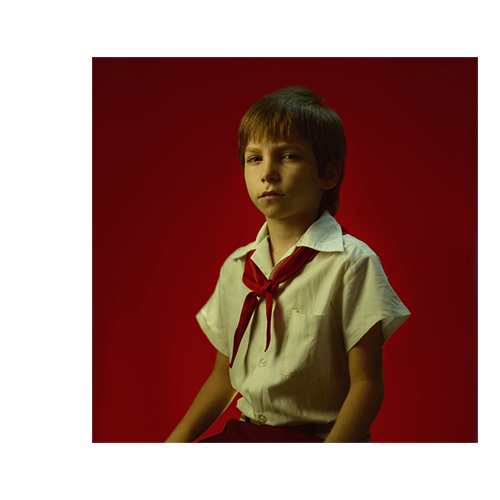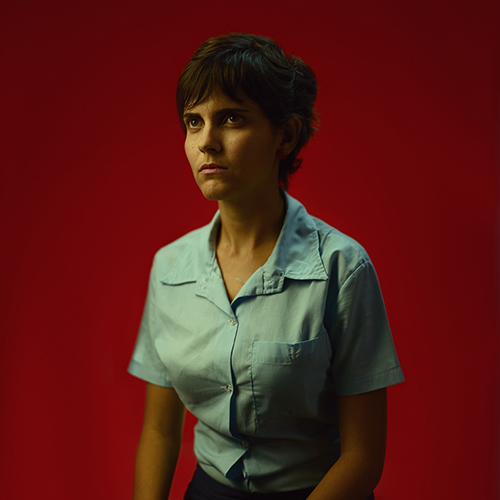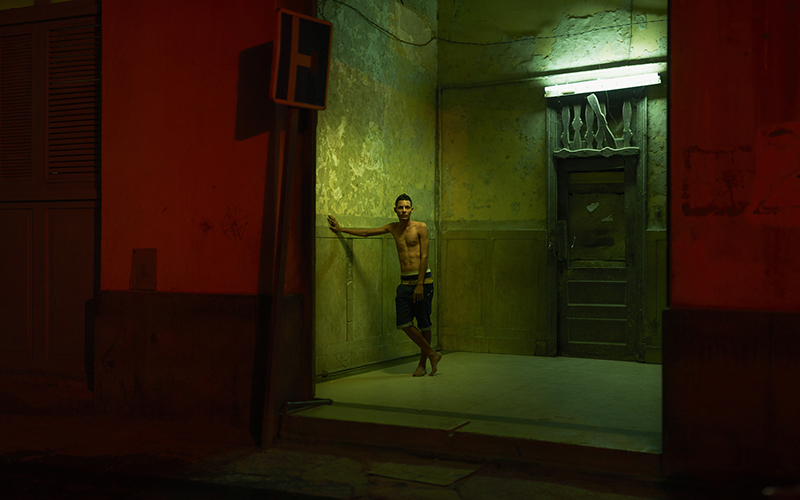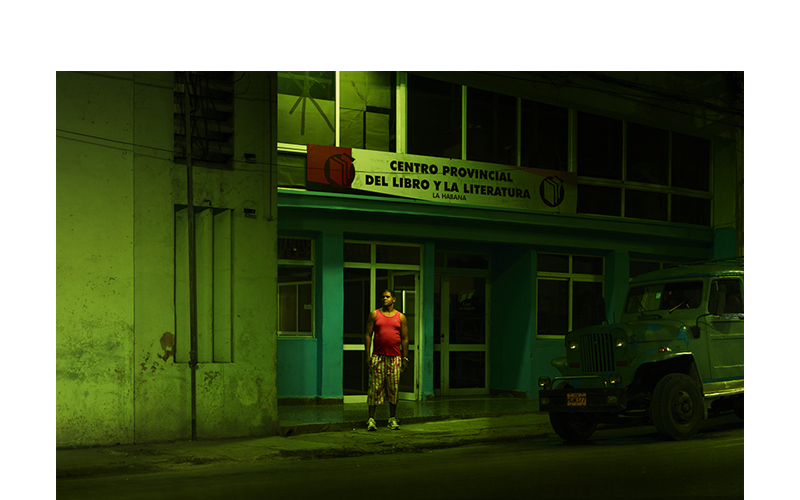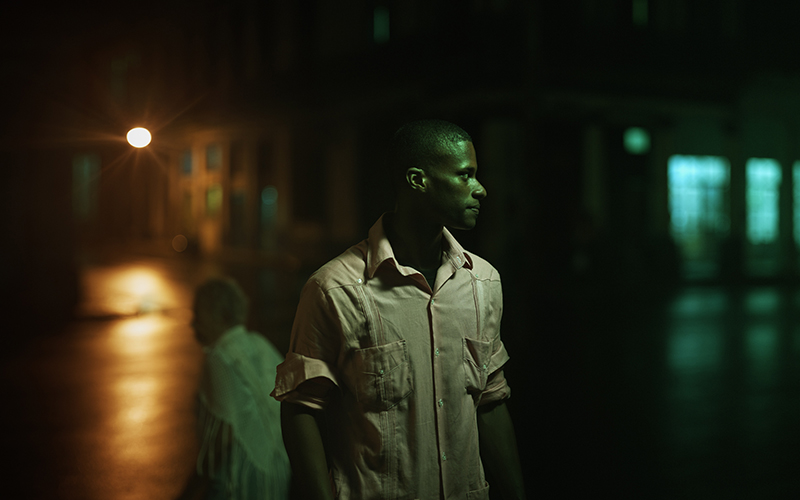

LA HABANA IN WAITING/等待中的哈瓦那 | YEAR: 2012
La Habana In Waiting - "Photography" completed in Havana
What can photography really achieve? In the unfamiliar city of Havana.I used my camera to achieve, or to testify to the ‘reality’ I envisioned. t was only about a kind of result – a result that all my subjects and I were waiting for - a result which is achieved through a camera lens and is called ‘photography’.
等待中 - 在哈瓦那完成的“摄影”
摄影到底可以做什么?特别在陌生的哈瓦那。即使和“真实”毫无关系我也抵达或者验证了我预想的“真实”。 它仅仅关于一种结果,我和每个拍摄对象都在等待的一个结果,一个通过相机被称之为“摄影”的结果。
Year:2012
Work Dimension:depends on work
Edition: 3+1AP
年份:2012
作品尺寸:根据作品而定
版号: 3+1AP
I and Cuba are separated by the distance between me and childhood memories.
As a photographer or someone with a camera, and also as a first-time visitor to Havana, Cuba, I'm wondering what I should capture: how should I capture it, and what I can capture, perhaps these two things are one and the same.
Perhaps, just like how Marc Riboud photographed China, capturing fleeting moments with a small camera or even a point-and-shoot, is the most "authentic" and fitting expression of my "tourist" identity. During this brief journey, I shouldn't see more than what the lens captures. However, people are more accustomed to defining authenticity through "depth." This depth pertains to ideology, to the imaginative relationships built upon ideology.
Just as seen in documentary photography, when people confront historical events, they can choose to confront the events themselves, but they can also reflect on them from a human, individual, and small-scale perspective. Just as a small flag can represent a hurricane, a rolled-up carpet can signify the departure of a president. Thus, when faced with unfamiliar things, we always have two kinds of depth. One is the overall macro stereotype, and the other is the micro looseness beneath the stereotype. Whether it's during the era of imperialist colonization or the post-Cold War period's perception of China, both of these depths coexist. Which of these depths is more real than the other?
Is a Cuba that resembles a political propaganda photograph more real, or is it the Cuba of young people waiting and wandering after the revolution? Both of these aspects exist in my experience as well. As a photographer from China, I begin with my own experiences to imagine scenes similar to these backgrounds, and that's the most fitting, isn't it? But I let these two coexist, placing them side by side, confirming and canceling each other out in mutual juxtaposition.
I gradually captured some young people in Havana. I placed them on the nighttime streets or in photography studios with colorful backgrounds. I greeted and shook hands with each person I photographed. I was captivated by this process - we were both suspicious, each wondering what we were really doing together. Were they performing in front of my camera? Was I directing them to achieve the images I had in mind? A camera can serve both as a tool for documentation and as a means of creating art. I have no intention of judging which one is closer to the essence of photography. Perhaps, in the end, this entire series of photos is just my imagined Cuba, even if it has no connection to "reality." I used my camera to reach or validate the "reality" I envisioned - maybe this is the true pleasure I, as a photographer, derive from it.
我和古巴的距离就是我和童年记忆的距离。
作为一个摄影师或者有相机的人,同时作为一个初次造访古巴哈瓦那的游客,我在想我应该拍些东西:我应该怎么拍,我能拍到什么,这两者也许是一回事。
也许如同马克·吕布(Marc Riboud)拍摄中国那样,拿小型相机甚至是傻瓜机拍一些浮光掠影式的东西,是最“真实”的,最恰如其分的表达了我的“游客”身份。在这短暂的旅程之中,我不应该比镜头看到更多。但是,人们更习惯用“深度”定义真实。这个深度关于意识形态,关于建立在意识形态之上的想象关系。
就像在报道摄影中所体现出的,人们面对历史事件,可以选择直面事件本身,但也可以从人的、个体的、微小的角度去反映它。就像一面小旗可以表达飓风一样,被卷起的地毯也可以说明总统的离去。于是,面对不熟悉的事物,我们总会有两种深度。一种是总体上的宏观的刻板,一种是刻板下的微观的松动。无论是帝国主义殖民时期,还是后冷战时代对中国的想象,都同时存在着这两种深度。这两种深度,谁比谁更真实?
一个政治宣传照似的古巴更真实,还是在大革命之后,等待和彷徨古巴青年们更真实?这两者同样存在于我的经验中,从我的出身(来自中国的摄影师)出发,按照自己的经验去想象类似背景的画面,这也是最恰如其分的吧?但我让这两者同时出现,并置在一起,互相印证,互相抵消。
我陆续拍摄了一些身在哈瓦那的年轻人,我把它们置身于夜晚的街道上或者有带颜色背景的摄影棚中,我和每一个被拍摄的对象打了招呼,握了手,我着迷于这个过程 - 我们彼此在猜忌,各自猜测着我们一起到底正在做些什么,他们在我镜头前表演么?我在导演他们以达到我预想的画面么?相机可以达到纪录的功能,也可以达到绘画的功能,我无意于评判哪一个更接近与摄影的本质。也许最终这一系列所有的照片只是我最终脑海中想象的古巴,即使和“真实”毫无关系我也利用我的相机抵达或者说验证了我预想的“真实”- 也许这是我作为摄影师得到的真正的快感。
